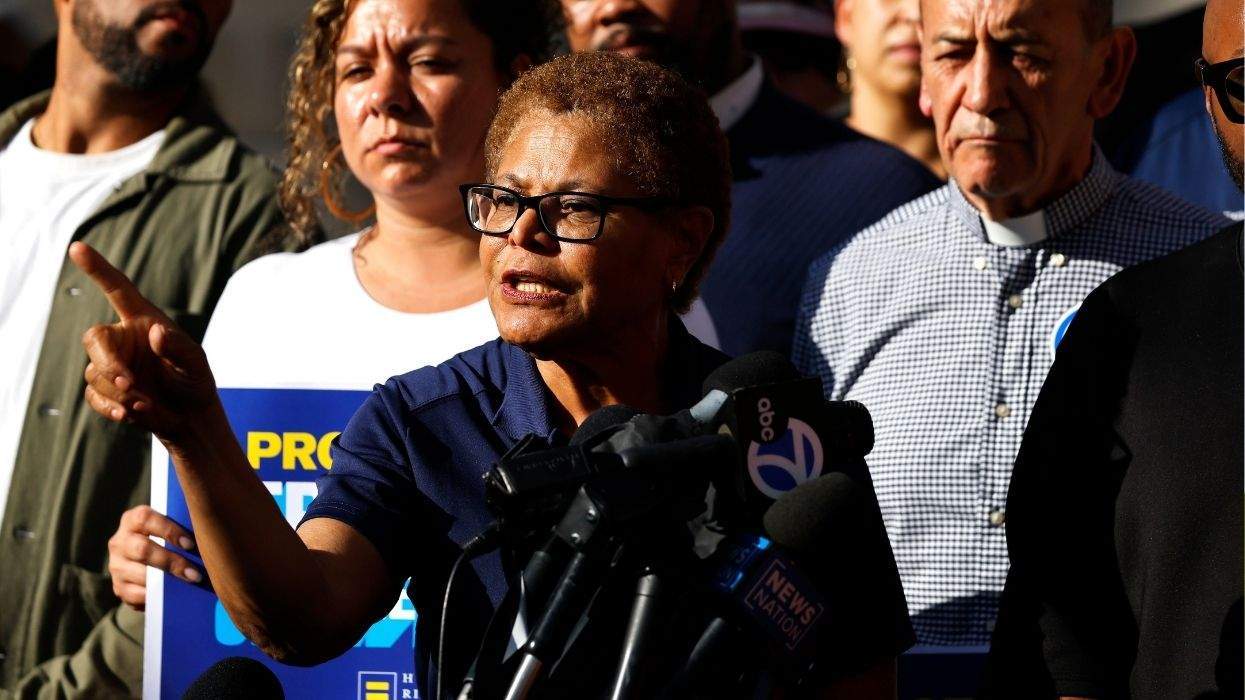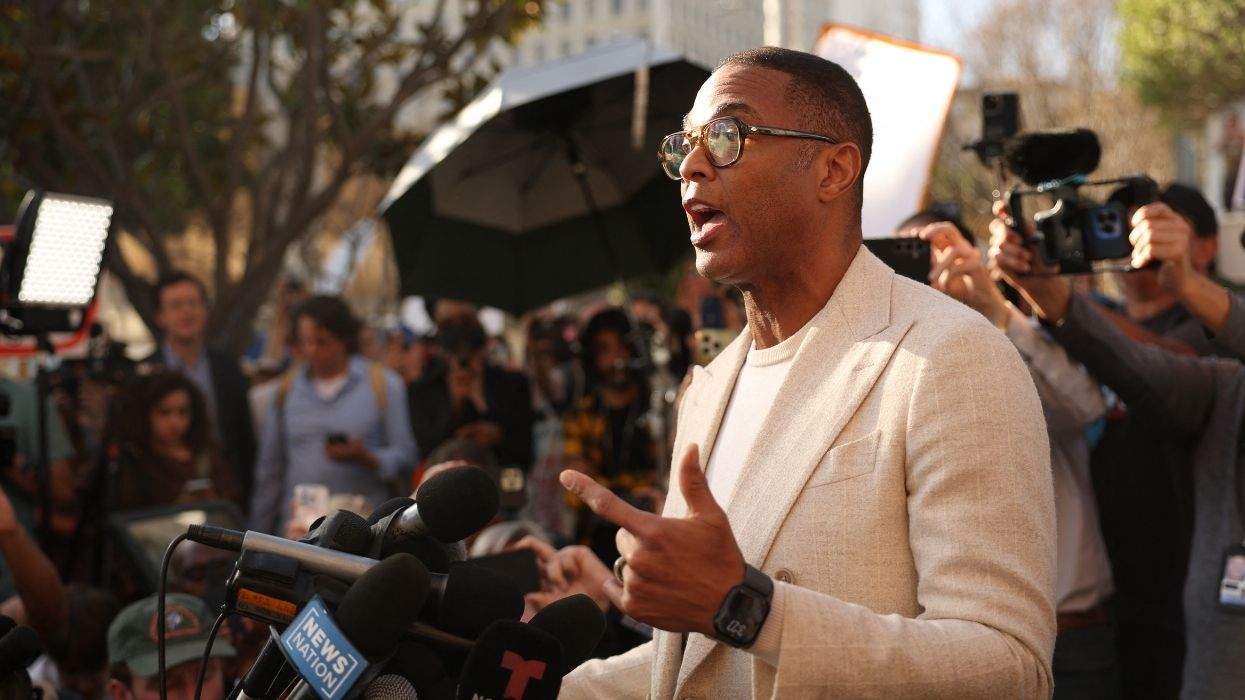When a federal appeals court in Cincinnati this week surprisingly snapped the unbroken string of appellate court victories for marriage equality, MSNBC's Rachel Maddow was quick to break it all down for her legions of loyal left-leaning viewers -- something she usually does better than anyone on TV.
"There's lot of different ways constitutional law gets made," the network's highest rated anchor explained Thursday evening, using a colorful pyramid graphic to represent the nation's justice system power structure. Much in the same way iconic journalist Edward R. Murrow and his "boys" used their skill at painting a picture in the mind's eye with steady delivery, clear imagery and spare words, Maddow relied upon simple terms, clear graphics, and spare maps to help viewers understand the significance of the Sixth Circuit Court of Appeals' decision to uphold marriage bans in four states: Kentucky, Michigan, Ohio, and Tennessee.
To drive home her point with a flair for pop culture, Maddow employed a generational touchstone familiar to her older baby boomer viewers: "Somebody's got to be Diana Ross. Somebody's got to be ... 'Supreme.' And for the last year or so, there have been rulings from a whole bunch of those circuit courts, those courts in the middle, right? A whole bunch of rulings that all said the same thing: They all said that same-sex marriage cannot be banned by the states. The Fourth Circuit, the Seventh Circuit, the Ninth circuit, the 10th Circuit Court, they all said the same thing about gay marriage. Well, tonight, for the first time, a circuit court has said ... the opposite."
Continuing her Wheels of Justice 101 class lecture, Maddow led her viewers to the next anticipated development: "So now, because of the hierarchy of our court system, now that means that the Supreme Court may have to weigh in here, directly, because, for the first time, there is a split in the courts that are just one level beneath them. And there is only one Constitution. And a right has to either be a constitutional right, or it's not."
Maddow addressed the reluctance of the justices to decide this issue beyond its impact on one state or a handful of states. "The Supreme Court has been desperate to not decide this matter for the whole country," she said, predicting that now they had little choice, "unless they can weasel out of it somehow," a line spoken as an aside, in her familiar and casual "just between us" style of delivery.
What Maddow did in those two minutes and six seconds was something journalism experts say the network evening newscasts have not done at that level in more than a generation: Educate viewers on what the news of the day means, why it's important, who will be affected by it and what's yet to come, in addition to the usual where, when, and how it happened. And as a Rhodes Scholar, Maddow is the right person for that task, says David T.Z. Mindich, professor of media studies, journalism, and digital arts at St. Michael's College in Vermont as well as the author of Just the Facts and Tuned Out: Why Americans Under 40 Don't Follow the News.
"One of the things that Maddow does that is rare is that she treats her audience with deep respect," Mindich says. "She assumes the audience can understand complex issues and act as adults. It sounds obvious, but if we think about the number of shows that do that on television today, we're left with a small number. Mindich cited Pew Research Center studies that show only Jon Stewart and Stephen Colbert are in Maddow's league, drawing the largest number of educated viewers nightly. "And in the same decade, CNN added Nancy Grace, Anthony Bourdain, and entertainment shows instead of covering news."
Mindich lamented the loss of emphasis on facts and overabundance of opinion in the media as long as a decade ago: "One of the most powerful things about journalism itself is that it can communicate to a large audience and then we can have discussions about facts and where the facts bring us; but if we no longer are paying attention, then the facts don't have the same weight," Mindich wrote. "In the absence of fact opinion becomes more powerful. It's not only the journalists themselves; it's the culture apart from the news that has abandoned political discourse based on commonly agreed upon facts."
With those words, Mindich confirmed that Murrow's worst fears had come true, a half-century after he admitted he worried what radio and television were doing to our society, our culture, and our heritage, in a speech in October 1958.
"This instrument can teach, it can illuminate; yes, and it can even inspire," Murrow said. "But it can do so only to the extent that humans are determined to use it to those ends. Otherwise it is merely wires and lights in a box."















